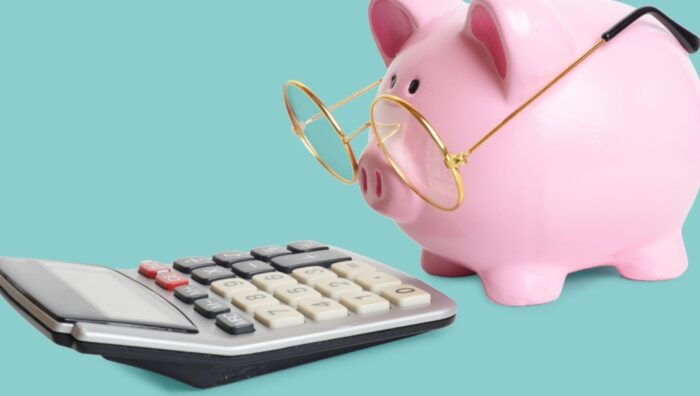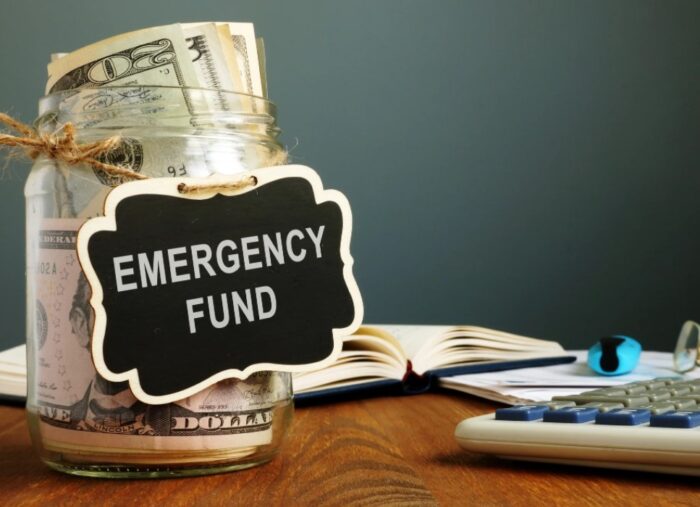
What is financial freedom? For many, it’s the ability to lead the life you want without your finances getting in the way. Whether this means eliminating debt or having an income that’s sufficient for your needs, strive to be less dependent on a paycheck. Money can be one of life’s biggest stressors. But when you play your cards right, it can be one of your biggest assets.
Unfortunately, financial freedom isn’t something many people are able to enjoy. But you can live the life you dream of by taking some basic steps. Here’s how to secure your financial freedom:
Visualize the End Goal

What do you hope to achieve with your finances? Identifying an end goal can be a great motivator when making difficult money decisions. Setting goals will also help you create tangible checkpoints to measure your progress. Imagine what you want, then use it as your financial compass.
For many, having financial freedom means getting out of debt. This means your goal will have a dollar sign attached to it equal to the amount of debt you owe. With this goal in mind, your financial decisions can be based on creating a plan that reduces debt and avoids creating more.
Other goals may include retiring early, travelling the world, or saving up enough money to put your kids through college. Keep these goals at the forefront of your mind and the following steps will come much more easily.
Build Up Your Credit
Your personal credit is an underrated aspect of your financial health. Your credit score is a representation of your trustworthiness as a consumer and as a loan applicant. The higher your credit score, the more financial opportunities you have available to you.
Let’s say you’re currently renting an apartment and your next big financial goal is to buy a house of your own. Owning a home allows you to build up equity and increase your net worth.
Buying a house is also a more difficult process than becoming a renter, though. Your credit score will determine whether a bank is willing to provide you with a loan. It will also determine what sort of interest rate they are willing to offer.
If you currently don’t have any credit, you can easily get started with a secured credit card like Chime’s. This will help you create a credit history. You can make smart financial decisions from day one to start your journey toward financial independence.
Follow a Budget

Budgeting seems like a no-brainer. Consider this your final warning. You’ve been told that budgeting is the optimal way to manage your finances, but are you actually using one? It will be hard to meet your financial goals otherwise.
Writing a budget down is a good start, but it isn’t always enough. You should be using your budget as an active road map every single day. Otherwise, you’ll only loosely follow your budget and end up spending more than you initially intended.
Consider keeping a written record of the transactions you make. This will help you see your budget in action and keep you accountable to the plan you’ve set. Online banking will automatically keep track of most transactions. Those analytics are another great place to start. You can set up a simple spreadsheet to track income and expenses, or use a budgeting app.
Generate Passive Income

Having a reliable income is necessary to achieve financial freedom. However, few people are aware of the incredible flexibility that can be found with passive income. Don’t quit your day job just yet. But looking for ways to generate passive income is a great way to build your bank account with minimal effort.
Real estate is a prime example of passive income. With enough savings, you can purchase a second property and rent it out to someone else. The rent they pay will help pay off the mortgage and put a little bit of money into your pocket. Additionally, the property value may increase over time. You can then sell the property for even greater dividends.
Prioritize generating passive income later than your other financial needs. Getting rid of unnecessary debt and making sure you can cover all of your regular expenses should come first.
Establish an Emergency Fund

Financial freedom isn’t just about earning and spending money. Saving money is also important. In particular, an emergency fund is a must-have for individuals and families looking for greater financial flexibility.
An emergency fund will get you out of an unexpected pinch that could otherwise put a strain on your finances. For example, if your car gives out, you can dip into your emergency fund instead of blowing your budget to replace it.
The ideal emergency fund should contain enough cash to cover three to six months of your necessary expenses. Start setting aside a little bit of money with each paycheck until you get to a comfortable position. No matter what life throws your way, you’ll be much more steady and secure thanks to this fund.
Start Investing Immediately

In addition to personal savings, you should start investing money as early as possible. While trying to make ends meet, many people overlook their retirement accounts until it’s too late. The earlier you start contributing to your future, the sooner you’ll have the financial cushion you want.
Even if you’re simply adding a few dollars to an IRA account each month, interest rates start to kick in immediately. That small amount of cash will have a long time to grow over the years. Don’t wait until you have a ton of expendable income to start investing.
Remember that it’s never too late to start investing for retirement. Start today if you haven’t already. Every little bit will help you create a future where you can relax and enjoy experiences instead of working forever.
Financial freedom doesn’t come easily, but it’s available to everyone. Start making the proper adjustments to your financial plan and this freedom will be yours to claim before you know it.














